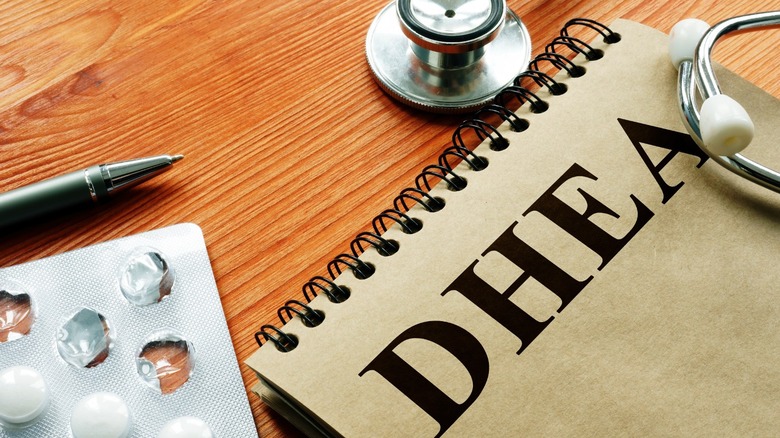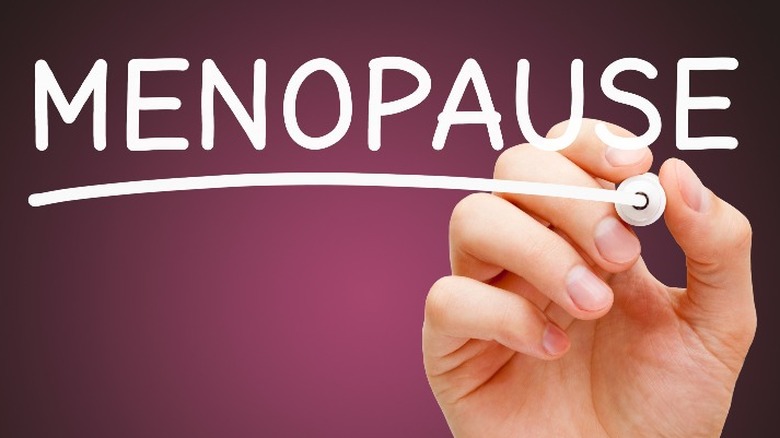What Women Need To Know About DHEA And Menopause
If you're going through menopause and experiencing symptoms that are impacting your quality of life, is there anything you can do to improve your situation?
According to some health experts, for women who are suffering during menopause as a result of declining hormones, such as estrogen, taking the hormone supplement dehydroepiandrosterone (DHEA) may be worth considering to address certain menopausal issues.
DHEA is one of a number of naturally occurring hormones in the body produced within the adrenal glands (via Mayo Clinic). The experts at Johns Hopkins Medicine explain that the purpose of the adrenal glands is to "help regulate your metabolism, immune system, blood pressure, response to stress and other essential functions." DHEA's primary function is to produce other hormones, such as estrogen; however, DHEA production ultimately declines as you age, thus affecting the production of estrogen during menopause.
Estrogen is an important hormone for women because it helps maintain vaginal flow, lubrication, and an elastic vaginal lining. It is also key in supporting bone strength. A woman's estrogen levels can start to decline when she enters perimenopause. As a result, symptoms that can begin to emerge during this phase and into menopause include hot flashes, night sweats, fatigue and headaches, and flagging libido, among others (via North American Menopause Society).
Is it safe for menopausal women to take DHEA?
According to the experts at RxList, taking DHEA appears to be most effective with regard to improving vaginal thinning during menopause. They suggest that vaginal inserts containing DHEA may decrease pain experienced during sex resulting from thinner vaginal walls. They note, however, that DHEA's track record has less consistent results with other menopausal symptoms such as hot flashes and decreased sex drive.
The experts at Mount Sinai concur that the results of studies on DHEA's effects on menopausal women are mixed, and that promoting over-the-counter DHEA supplements as a way to manage menopausal symptoms is controversial. Not only is it unclear whether DHEA is an effective treatment, but there is no scientific data yet that confirms that taking DHEA supplements does not increase your risk of cancer.
Dr. Eric Berg, DC, a chiropractor and health educator, suggests that if you are going through menopause and want to try DHEA supplements to "start in very small amounts and gradually increase" to avoid side effects such as acne, oily skin and excess body hair, which can result if the DHEA stimulates the body to produce too much of the hormone androgen.
Bottom line: Most health experts strongly advise that people with a history of hormone-sensitive cancers should avoid DHEA and those who wish to try DHEA should do so under a doctor's supervision and educate themselves about DHEA's potential serious side effects when combined with other medications.


